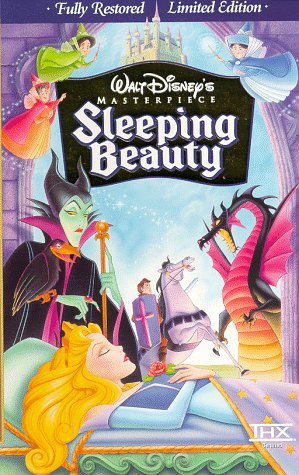It has been 50 years since Walt Disney released his last, cherished film: Sleeping Beauty. Princess Aurora was a rather passive, sighing creature who was very taken with the tall, handsome prince who was to wake her from her slumber: “Oh, we walk together, and talk together, and just before we say goodbye, he takes me in his arms, and then … I wake up. Yes, it’s only in my dreams. But they say if you dream a thing more than once, it’s sure to come true, and I’ve seen him so many times.”
Walt didn’t live to see the feisty feminists who burst on to the global political scene a decade later, puncturing holes in princessy stereotypes, insisting women not be valued for their decorative function and demanding to be taken seriously.
The rules of romance were smashed then, and the task of rewriting them has been fraught and fragmented. Love is one thing no political movement can control. Which is why it is odd that so many women today are blaming feminism for failing to ensure all women have happy relationships and neat, tidy life plans. If you trawl through the most recent outpourings about love, romance and marriage, the negativity is overwhelming.
As the writer Sandra Tsing Loh said to Irina Aleksander, a 25-year-old reporter from The New York Observer, recently: “It must be very confusing … Even stay-at-home moms feel unsuccessful unless they’re canning their own marmalade and selling it on the internet. You just have a bunch of drunk, depressed old ladies going ‘A-BLAH-BLAH-BLAH’.”
Aleksander calls these old ladies ”cautionary matrons” who, she writes, issue incessant warnings and keep shouting “Don’t end up like me!”
“Single 40-something women warn us about being too career-oriented and forgetting to factor in children,” she argues. “Married women warn us that marriage is a union in which sex and fidelity are optional; and divorced women warn us to keep our weight down, our breasts up and our skin looking like [Glad] Wrap unless we want our husbands to later leave us for 23-year-olds.” I’m not sure the warnings are always so consistent, but the thrust of what she is saying is right. Many women keep looking behind them and bemoaning their mistakes, making us seem like a pretty miserable lot.
Last year Lori Gottlieb wrote an essay in The Atlantic advising women to settle for Mr Good Enough. At 40 she had conceived a child with donor sperm and now regrets leaving uninspiring relationships. She thinks she should have settled for a decent family man, a partner in the domestic work of bringing up children. “Don’t worry about passion or intense connection,” she writes. “Don’t nix a guy based on his annoying habit of yelling ‘Bravo!’ in movie theatres. Overlook his halitosis or abysmal sense of aesthetics.”
Although, be warned: whatever you do there will always be regret. She writes: “Unless you meet the man of your dreams (who, by the way, doesn’t exist, precisely because you dreamed him up), there’s going to be a downside to getting married, but a possibly more profound downside to holding out for someone better.”
Then there’s Tsing Loh, whose 20-year marriage ended when she was 47 because her “commitment to monogamy came unglued”. Whoops. She, too, wrote a piece railing against any romantic notion of marriage. Women, she believes, should view marriage as a mortgage-splitting arrangement: “Long-married husbands and wives should pleasantly agree to be friends, to set the bedroom aglow at night by the mute opening of separate laptops and just be done with it.”
Mmmmm, laptop glow. Dare to dream, girls. Tsing Loh advises women, predictably, to avoid marriage so as to not suffer the expense and pain of divorce, all for something as fleeting as love. Or … you could avoid having an affair.
Sigh. Did we really think feminism could harness the great beasts of love, lust and fate so that we could all meet perfect men at exactly the right time and produce perfect children? It’s an impossible expectation, yet my generation of writers seems compelled to wag fingers at younger women and repeat that most over-worn and irritating of phrases: “You can’t have it all.” That concept has little to do with women and everything to do with being human. Men don’t sit at the pub telling each other it’s impossible to love, have jobs you like and be happy. So we should stop telling young women to dampen their expectations, trim their hopes like wild hedges and accept less than they desire. Of course, they should be armed with the now widespread knowledge that fertility declines with age, and that love can be a many-splintered thing, but young women should still feel free to dream, to dare and take risks, even if nothing is certain.
Feminism didn’t promise the world: it took on the world. It didn’t promise to stop hurt or provide good men to marry. If we must continue to talk about how life might disappoint, fine. But let’s also allow for the possibility that perhaps, if we are bold, it might just not.
